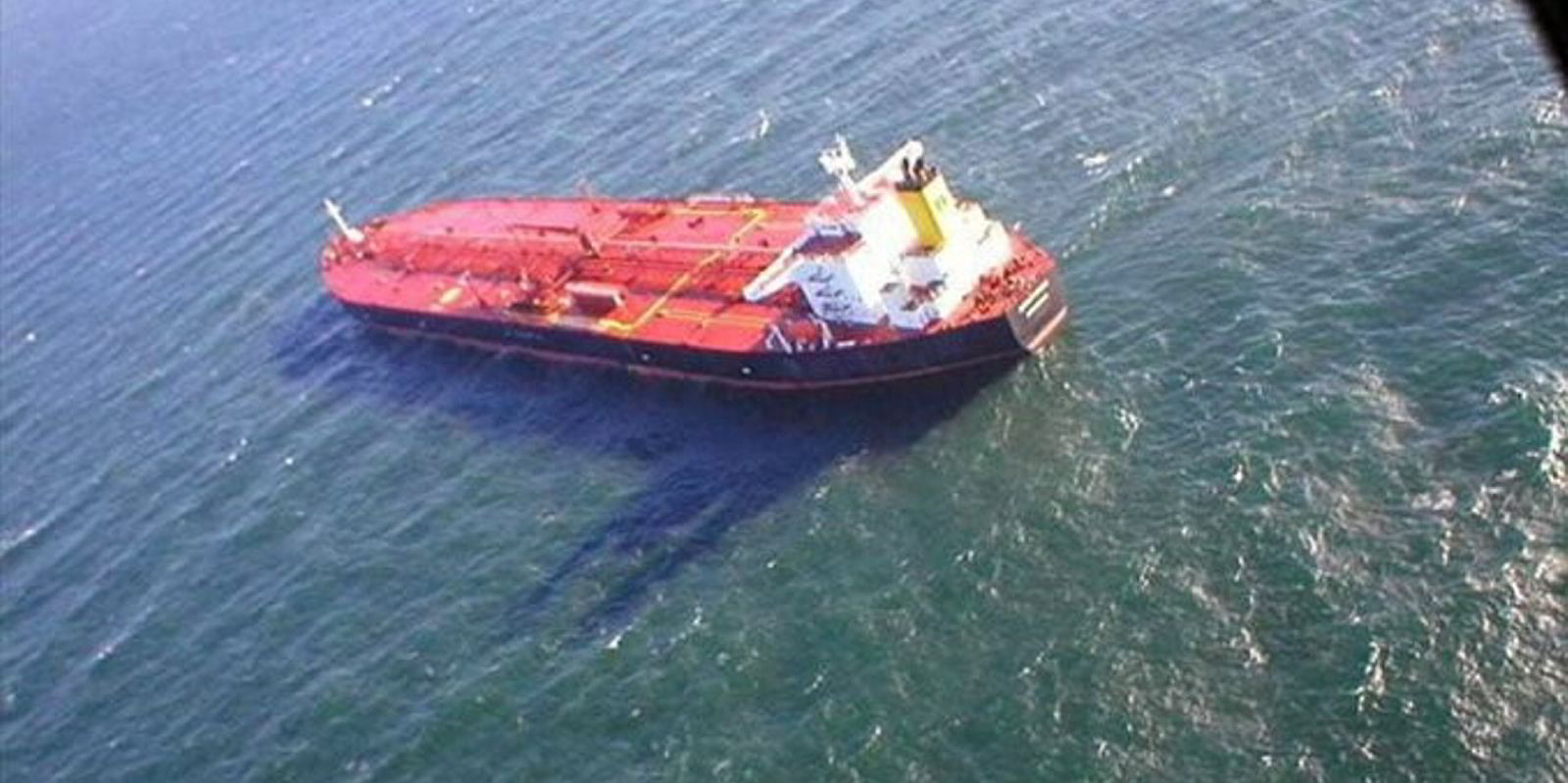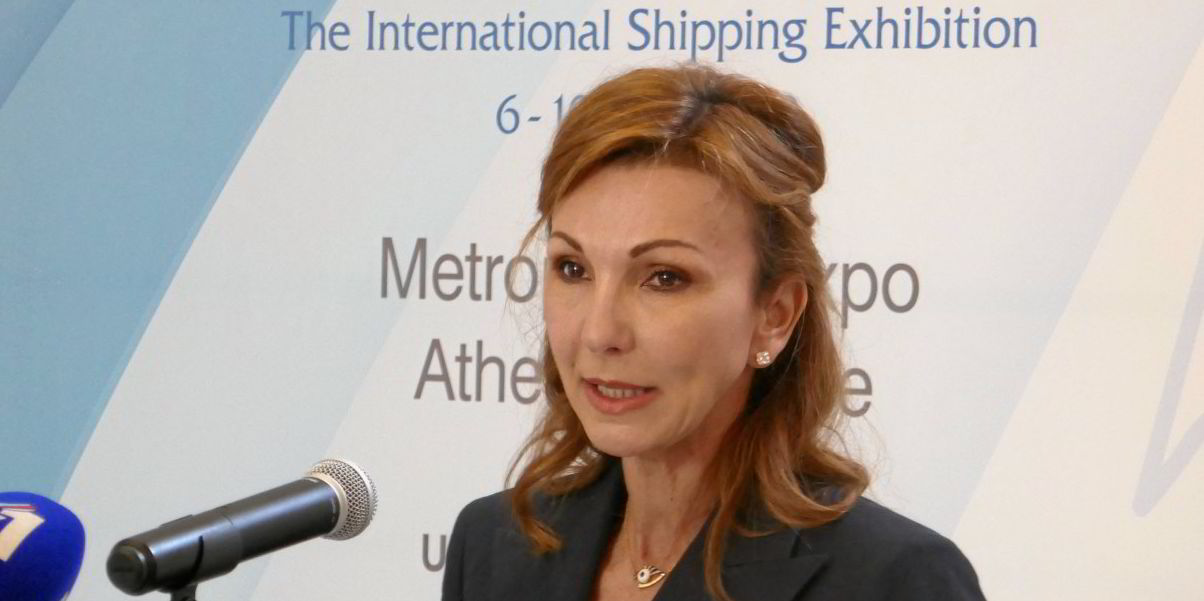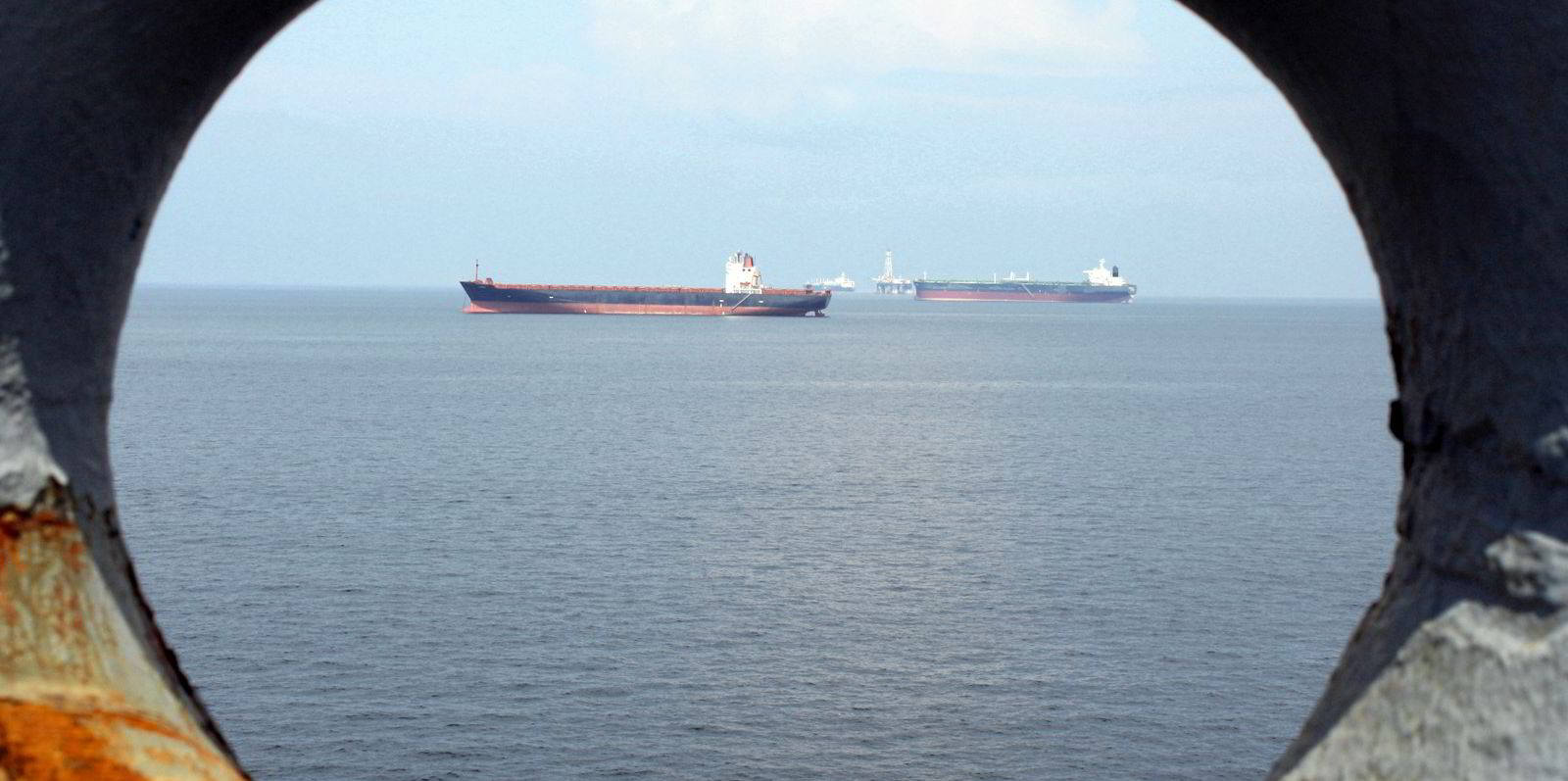In a high-stakes game involving three tankers seized in two countries with more than 400,000 tonnes of crude oil on board, efforts to offload an Iranian cargo impounded in Greece are progressing at a snail’s pace.
According to sources with direct knowledge of the matter, 68,000 tonnes of oil have been offloaded so far from the 115,400-dwt aframax Lana (built 2013) — a Russian-linked, Iran-flag vessel detained by Greek authorities since April.
It has taken almost a week for Dynacom Tanker Management’s 70,400-dwt panamax tanker Ice Energy (built 2006) to remove all the oil it can from the bowels of the Lana, which is anchored at Karystos anchorage in the Aegean Sea.
The main reason for the delay is the fact the Lana’s crew of 19 Russian seafarers have not been cooperating, forcing the Ice Energy and adjacent support vessels to carry out the operation.
Having taken all the oil it can from the Lana, the Ice Energy moved to Piraeus anchorage on Thursday morning.
The ship was expected to carry the cargo straight to the US, after American authorities obtained a Greek court decision last month to impound the cargo on the basis of sanctions on Iran.
The Ice Energy, however, was staying put at Piraeus anchorage as of Thursday afternoon.
Meanwhile, a second Dynacom vessel, the 70,400-dwt Ice Victory (built 2006), is anchored near the Lana with the task of removing the ship’s remaining cargo.
With strong winds blowing in the area, the operation is expected to take days to complete, the sources told TradeWinds.
No inerting, no ballasting
A Greek seafarers union has already criticised the ship-to-ship transfer as environmentally dangerous.
With the Lana’s own fuel supplies dwindling, the operation is being carried out without inerting and ballasting that is usually required to conduct such manoeuvres safely, ship engineers’ union PEMEN said.

Any delays in offloading the Lana, however, have an upside, in the sense that they may give Greek and Iranian authorities more time to settle the matter.
Most likely to gain leverage in the bargaining, elite Iranian forces on 27 May seized two laden Greece-flag suezmaxes sailing off Iran’s coast with about 50 seafarers on board.
Iranian vessels have not tampered yet with the cargo of Delta Tankers’ 157,400-dwt Delta Poseidon (built 2011) and Polembros Shipping’s 150,000-dwt Prudent Warrior (built 2017).
It is natural to assume, however, that the fates of the three ships and their cargoes are intricately linked.
Publicly, Iran and Greece are accusing each other of piracy.
Iran has threatened to disrupt other Greece-flag vessels in the Middle East. Greece has warned its ships to avoid Iranian territorial waters and advised its citizens not to visit the country.
Melina Travlos, president of the Union of Greek Shipowners, became the latest person in Greece to express outrage on Thursday.
“Detaining two Greek-flagged vessels is unheard of ... The entire international shipping community, all nations, must revolt against this,” Travlos said in the opening press conference for Posidonia.
Despite such public language, however, busy diplomatic bargaining is understood to be taking place below the radar to resolve the matter.





